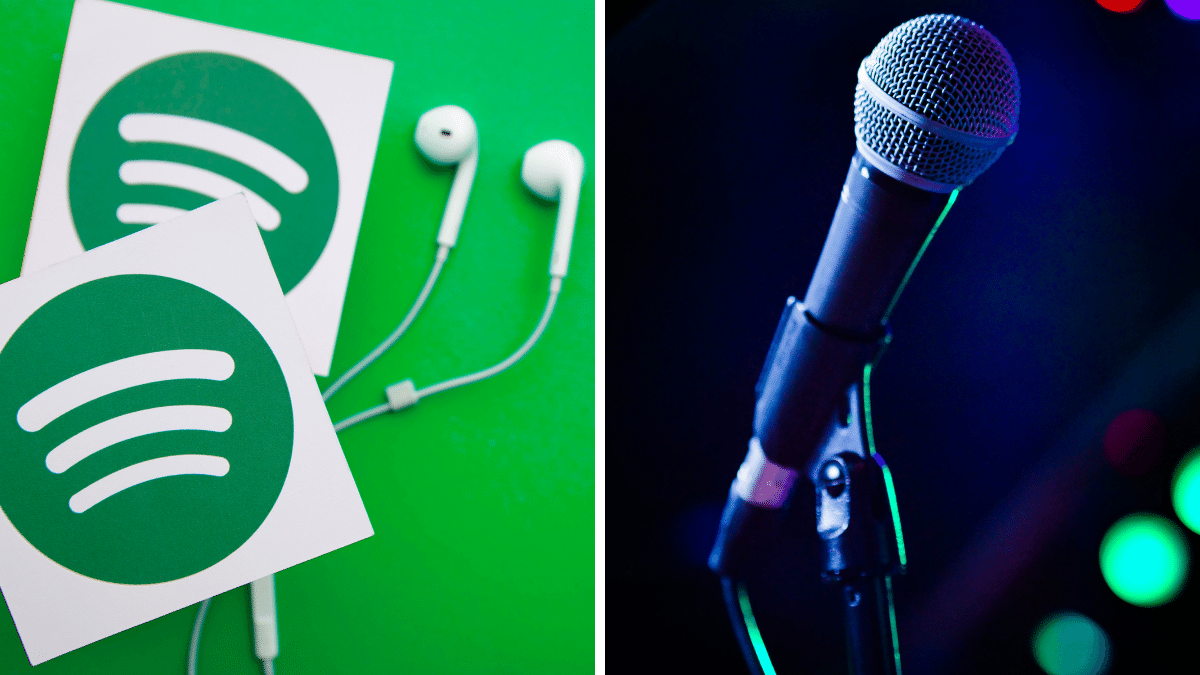Why Spotify Removed So Many Comedy Albums

Last week, Spotify removed a slew of popular comedians from their service including John Mulaney, Kevin Hart, Lewis Black and Tiffany Haddish to name just a few.
The move was abrupt and left both the comedians and their fans in a lurch. However, the move didn’t come completely out of nowhere.
It’s actually a battle that has been brewing for several years but has only now reached a tipping point.
So, what is going on? Why is it suddenly a big enough issue that Spotify feels compelled to remove many of the most famous comedians from its service, and when will things likely return to normal?
To answer that, we have to take a detour into the world of music licensing and see how comedy albums are both very similar and very different from music when it comes to licensing them for streaming.
A Quick Dive into Music (and Comedy) Licensing
Note: This will be an extremely brief overview of music licensing, for more details, check out this 2017 article on the topic.
Music licensing, to put it mildly, is extremely complicated. However, the most important thing to remember is that, for every song you stream on Spotify or Pandora, there are two separate copyrights at play: The composition and the recording.
The composition covers everything that is written down including the sheet music, the lyrics and so forth. The recording covers the actual audio file that is streamed. Companies like Spotify have to pay license fees on both the composition and the recording to be able to stream songs.
Those licenses, in turn, are paid to record labels (with regard to sound recordings) and to music publishers (with regard to compositions).
For comedy and other spoken word content, this is not how it has worked. Comedians have historically received royalties for their recordings, often through their labels, but have not received them for the composition.
This, has been on the horizon for some time. Back in 2015, Pandora mentioned in its SEC filings that such works were not currently entitled to royalties based on the composition, but that was a standard industry practice, not necessarily the law.
The winds on that issue began to turn back in 2019 when a new company, Spoken Giants, was launched to help comedians claim royalties for their compositions.
The Sleeping Giant Awakens

Spoken Giants is the company very much at the center of this dispute. They represent many of the best-known comedians in the world and have been fighting to get unpaid royalties for them.
Recently, they’ve turned their attention to the issue of composition royalties for comedian. The logic is quite simple, stand-up comedy is similar to music in that it has both a composition (the written version of the routine) and the recording. As such, they argue comedians should be eligible for the same royalties as musicians.
They’ve approached various streaming services, including Spotify, with this exact argument. However, those services are not used to doing much negotiating around these royalties.
The reason for that is the two biggest music performing rights organizations, ASCAP and BMI, are under very strict consent decrees. These decrees place severe limitations on the negotiating leverage and the rates themselves are often decided by rate courts, not by any mutual agreement.
Spoken Giants is under no such consent decree and is free to negotiate these royalties as they see fit. Services like Spotify can decide to remove the material in question.
One group in a bizarre position are the record labels. They don’t have a stake in this particular fight but now many of their spoken word albums are not generating revenue.
All of this leaves just one question: What is likely to happen next?
What the Future Holds
The obvious hope is that the two sides will quickly work out a deal and everything will return to normal and comedians will be paid the royalties they feel they are owed. Though no one has taken this argument to a court of law, it seems logical that comedians would qualify for the same royalties composers do.
While it’s understandable that Spotify would like to keep the previous system, the alternative at this point is likely a lawsuit.
For their part, Spoken Giants seems to be fairly reasonable. As a representative said in this article on Vulture, they recognize that this is precedent-setting and say that they are trying to work with streaming companies, including offering short-term deals to get things started.
Though it’s impossible to know exactly what is going on behind the scenes, it’s telling that only Spotify has felt the need to remove any tracks. Apple Music, Pandora and others have not.
Clearly, this is an effort to put pressure on the comedians (as well as their labels) but it doesn’t seem likely that they will buckle any time soon. Given that many comedians never realized they weren’t receiving royalties for their compositions, this is a genie that one cannot put back in the bottle.
Bottom Line
At some point, it’s likely that this issue will land before a court. However, it doesn’t have to be Spotify or Spoken Giants that gets it there.
Rather than codifying the idea into law, Spoken Giants is aiming to change the industry norm. However, even if Spotify and other major industry players make the shift, it doesn’t mean that everyone will.
In short, this will be an issue to keep an eye on, both in terms of the ongoing negotiations and the potential legal implications.
Want to Reuse or Republish this Content?
If you want to feature this article in your site, classroom or elsewhere, just let us know! We usually grant permission within 24 hours.
